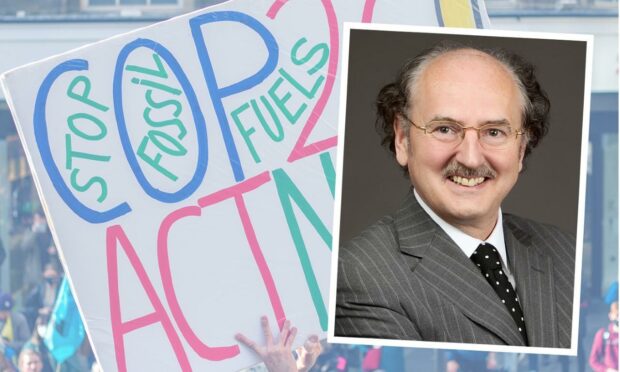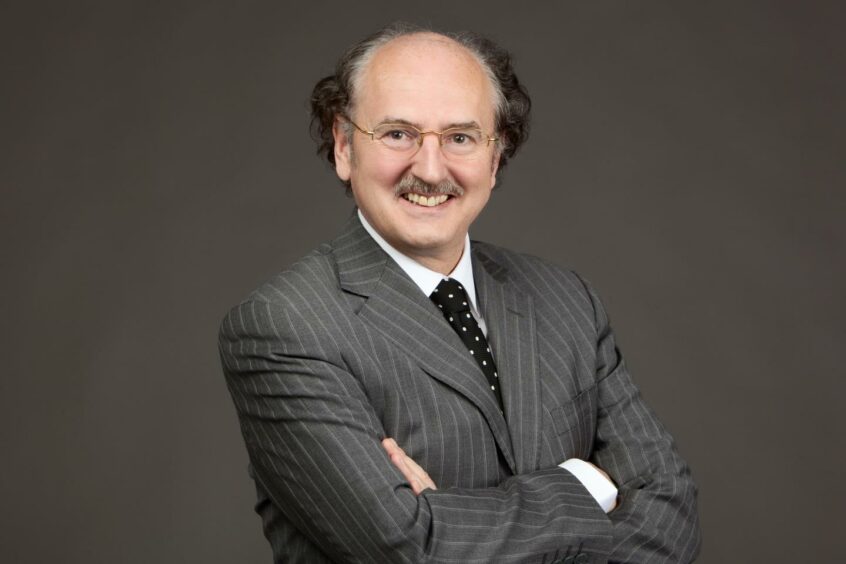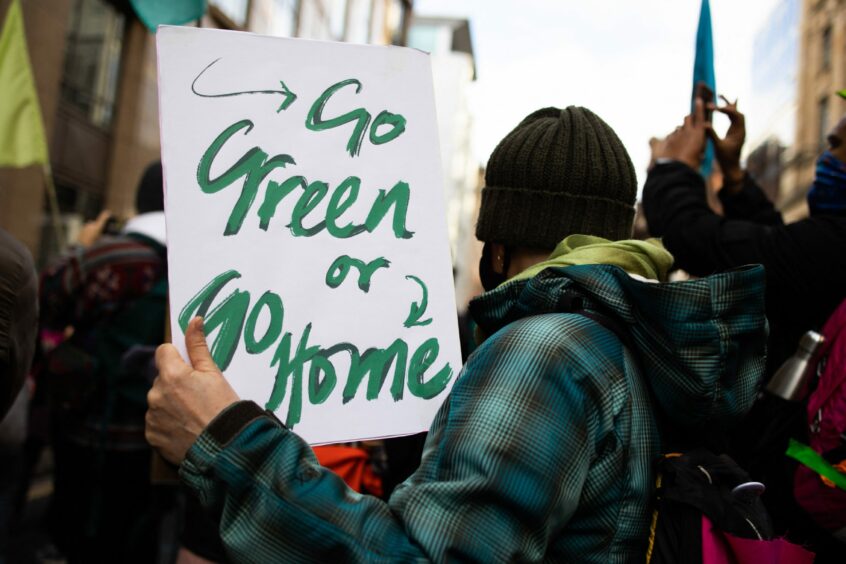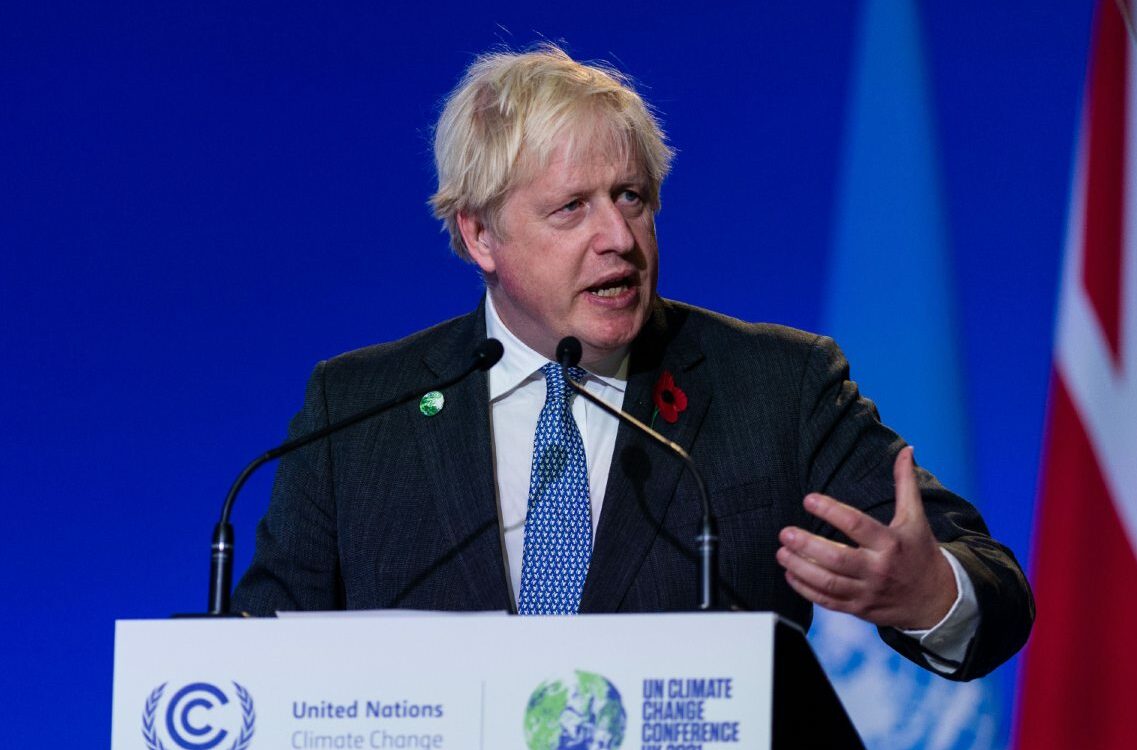Global climate crisis talks are “doomed to failure” unless the richest countries stop ignoring those from the developing world, according to a Dundee energy expert.
The stark warning by Dundee University professor Peter Cameron comes as world leaders meet in Glasgow for the United Nations COP26 conference in Glasgow.
Professor Peter Cameron, director of Dundee’s centre for energy, petroleum and mineral law and policy (CEPMLP), has warned that failure to deal with the climate emergency will reverse decades of progress in reducing poverty.
The professor claims this could also lead to increased conflicts and create tens of millions of climate refugees, as the earth becomes more uninhabitable.
CEPMLP has published a series of five research papers to coincide with the climate conference in Glasgow taking place this week.
Each addresses an aspect of the global green energy transition by exploring the aspirations, needs and opinions of African, Caribbean, and Asian countries.
Professor Cameron says so far, the focus of COP26 has been on the world’s major economies but has warned that a decarbonised economy is impossible without engagement with the least developed countries (LDCs).
Engagement involves sharing technology, developing a new green-focused aid foundation and addressing the imbalance global economy.
Poverty impacts on developing countries
Professor Cameron said: “Poverty reduction has to be an integral part of the transition away from fossil fuels.
“These LDCs have done very little to cause the problem but face the consequences caused by others and are being told not to apply the same growth model that has served the richest countries so well.
“We have spent time working with our partners in these countries to hear their concerns, not just about the consequences of climate change, but also the consequences of moving away from an economy powered by fossil fuels.
“The poorer nations have, as always, been marginalised in the public discourse, but the debate around what the developed world must do massively impacts on LDCs, not least because of the imbalanced way the global economy is structured.
“Of course, we need the big polluters to decarbonise but the indirect effect of all these rich countries getting to net zero will brutally hit producer nations with a far smaller carbon footprint.
“In fact, the outsourcing of manufacturing means that a large chunk of many countries’ emissions is directly attributable to the consumer economies of the developed world.
“If the markets they sell to stop buying then that has a huge impact in countries with extremely high levels of poverty who have, understandably, seen the West’s insatiable appetite for energy as their salvation.”
Deprived countries behind renewables
CEPMLP’s research has found many countries that produce oil and gas are not using it for their own consumption and rather exported to China, Europe and elsewhere.
Professor Cameron claims their studies showed many of these countries were willing to move towards renewables but have had to attention at COP26.
Professor Cameron said: “We need to share technology to enable countries to produce renewable energy at scale and also commit to a system of aid funding that will help them to adjust without undoing decades of poverty relief successes.”
Developed world ‘failing to show leadership’
The call for increased and reformed aid comes as the UK Government has cut its below the UN target of 0.7% of GDP.
This is just one area in which Professor Cameron believes the developed world is “failing to show leadership”.
He added: “Politicians are prioritising electoral strategies over the difficult decisions that need to be made if the worst outcomes of global warming are to be averted.
“These short-term considerations will have grave long-term consequences for everyone.
“The countries that are most at risk from climate change are also the ones that are booming in terms of population.
“The more economically unstable, engulfed in conflict or outright inhabitable they become, the more their people will be forced to seek a better life elsewhere.
“Potentially that will dwarf the refugee crises we have seen in recent years.
“We need to stop ignoring the developing world on climate and energy. COP26 should be the opportunity to bring them fully into the conversation and treat them with respect.
“Unless the major players include the developing world then we will see conflict rather than resolution.”
CEPMLP’s research papers can be found on their website.
The work has been supported by external grants received from the Foreign, Commonwealth & Development Office (FCDO), the Global Challenges Research Fund, the Scottish Funding Council, and the Royal Society of Edinburgh (RSE).













